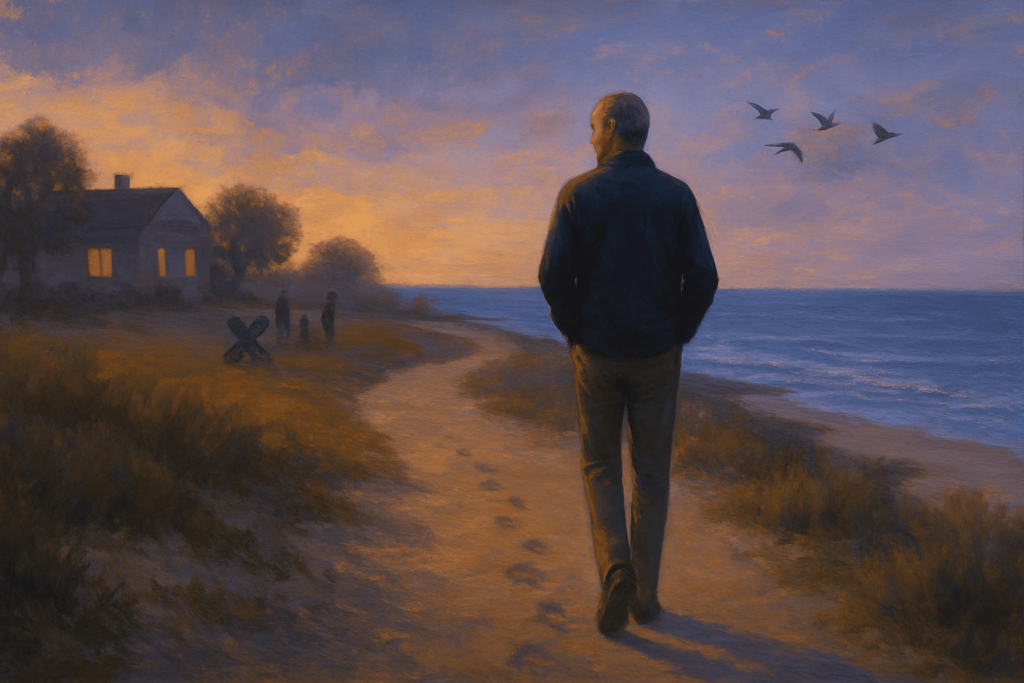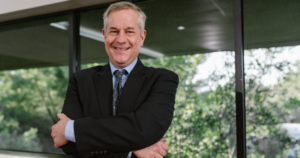There’s a quiet liberation in reaching 50 without children—not because it’s inherently better, but because it reveals a life shaped by different contours. There are no school runs or college funds, no strained holidays juggling in-laws and naptimes, no generational baton being passed in blood. For some, this absence is a grief. For others, a relief. For most, it’s a complex, evolving identity that defies simple narrative.
But what often goes unspoken is that being childless by 50 can also mean developing skills that many parents struggle to master—not out of incapacity, but due to the psychological weight of role conflict. This is the concept at the heart of it all: the idea that the more roles you occupy—parent, partner, employee, sibling, caretaker—the more likely they are to compete. And when roles collide, clarity blurs. Time fractures. Your ability to respond to life’s curveballs narrows, because there’s always someone else’s need in the room.
Without children, your internal space is often less crowded. You may still be a partner, a professional, a sibling, a child to aging parents. But one of the most emotionally demanding roles—that of a caregiver to a dependent human being—is absent.
And that absence, paradoxically, creates room to build capacities that are harder to develop under constant strain. It’s not that parents can’t do these things. It’s that many simply don’t have the psychological bandwidth to refine them. The childless often do. And that difference begins to show up in very particular ways.
Take crisis decision-making. At 50, life has taught you that certainty is a mirage. Plans dissolve. People leave. Health falters. Crises arrive uninvited. But if you’ve lived without the daily pressure of raising children, chances are you’ve had more time to strengthen your inner compass. You’re less likely to default to reactive thinking. You don’t need to make decisions based on “what’s best for the kids” or weigh every choice against someone else’s developmental stage.
Your thinking is often clearer, more adaptive. Not because you’re colder—but because you’ve had to rely on internal metrics instead of externally imposed ones. You’ve built your intuition without a child’s needs constantly overriding it.
Then there’s the matter of solitude. Many parents, by midlife, have forgotten what real solitude feels like. Their nervous systems are attuned to interruption. Even when the kids grow up, the habit of fragmented attention remains. But if you’ve gone through your 40s without children, you’ve likely developed a more intimate relationship with solitude—sometimes by choice, sometimes by necessity.
And that intimacy matters. It builds emotional resilience. It teaches you to sit with discomfort without numbing. It strengthens your ability to reflect before reacting. It gives you space to metabolize your emotions rather than broadcasting them outward in a moment of overwhelm.
In a culture that pathologizes aloneness, the childless often carry a hidden strength: they’ve learned to be alone without being undone.
Conflict navigation is another space where this clarity shows up. When you don’t have children, your family dynamics are different. You’re less likely to stay in dysfunctional relationships for the sake of the kids. You’re more likely to have moved through difficult friendships, ended stale romances, restructured boundaries.
That doesn’t mean you’re immune to conflict—but you’re often less entangled. Without the triangulation that kids can unintentionally create—where one parent uses the child as buffer or pawn—you deal with people more directly. More cleanly. You’ve had to cultivate emotional intelligence not for someone else’s benefit, but for your own survival.
You’ve learned that peace isn’t the absence of conflict—it’s the presence of clear, respectful boundaries. And in midlife, that kind of clarity becomes gold.
Financial pressure is another crucible where the childless often diverge. Parents carry a different kind of economic anxiety. Their decisions—housing, career, healthcare, even moral outlook—are often filtered through the lens of what they believe will provide stability for their children. But that lens can also distort. It can make people risk-averse, paralyzed, self-sacrificing in ways that backfire. When you don’t have dependents, your relationship to money changes.
You may still have fear, still face scarcity, but your choices are freer. You’re more likely to pivot careers midlife. To start that business. To live smaller, more flexibly, or larger, more adventurously. You can view wealth not just as a duty, but as a tool for self-expression or impact. And the absence of one role—provider to children—makes room for others to grow.
Let’s talk about friendship. Real friendship. Not logistics-based alliances formed through your children’s school calendars. But chosen, cultivated, enduring friendships built across time and distance. When you don’t have children, you often have to work harder to build and maintain your tribe. And that effort creates depth. It forces you to show up, not out of obligation, but because you value the relationship.
Parents can have beautiful friendships too—but their time is often rationed. The childless, by contrast, tend to build lives with more horizontal connection.
They develop what psychologists call distributed intimacy—an ability to be emotionally available to many people, not just a nuclear unit. This network, when mature, provides resilience that rivals the traditional family structure. And by 50, it becomes a quiet superpower.
Finally, there’s the question of identity reinvention. Midlife is a reckoning. No matter who you are, something you built will no longer fit. A career will end. A body will change. A role will dissolve. For parents, these shifts often coincide with the empty nest—and many struggle to reclaim a self beyond their parental identity. But the childless have already had to do that work.
They’ve lived with the cultural scrutiny, the questions, the quiet exclusions. They’ve had to build identities not based on biological milestones but on chosen ones. Reinvention is baked into their story. So when midlife calls for another transformation, they’re more agile.
They’re less likely to cling to what was. More willing to ask: What now? And that question, when asked without fear, opens doors most people don’t even see.
None of this is about superiority. It’s not a medal. It’s not a race. It’s simply a different set of conditions that produce a different set of skills. Psychology doesn’t say childless people are better. It says they are shaped differently—and in some areas, those differences translate to sharper capacities, cleaner insight, deeper freedom.
But those strengths often go unacknowledged. We’re still living in a cultural moment where parenting is seen as the ultimate form of maturity, sacrifice, and love. And there’s truth in that. But it’s not the only truth. Choosing—or arriving at—a life without children can also be a crucible for maturity, sacrifice, and love. It just plays out in less visible ways. And by 50, those ways begin to crystallize.
You’ve learned how to hold your own grief without projecting it onto others. How to celebrate friends’ joys without feeling excluded. How to move through holidays that don’t revolve around descendants. How to claim rest without guilt. How to find meaning in contribution, not reproduction. These aren’t coping mechanisms. They’re competencies.
Still, the world will ask. “Don’t you miss it?” “Don’t you worry about dying alone?” “Isn’t it too late to change your mind?”
They don’t ask because they know something you don’t. They ask because you know something they fear: that it’s possible to live a full, connected, purposeful life without following the blueprint. That it’s possible to be enough without being needed. That it’s possible to love deeply without claiming ownership of anyone else’s existence. That it’s possible to meet crisis with clarity, solitude with strength, change with grace.
Role conflict is real. And it doesn’t make parenting bad. But it does make life more complex. And the fewer conflicting roles you carry, the more capacity you have to navigate life’s psychological terrain with precision. At 50, if you’ve made peace with your choices—or even just begun to—you may notice something strange: you’re not missing out. You’re seeing clearly. You’re acting from center. You’re responding to life from a place of chosen alignment, not inherited expectation.
That’s not just emotional maturity. That’s psychological freedom.
And that, regardless of how your life looks from the outside, is something few people truly master.







